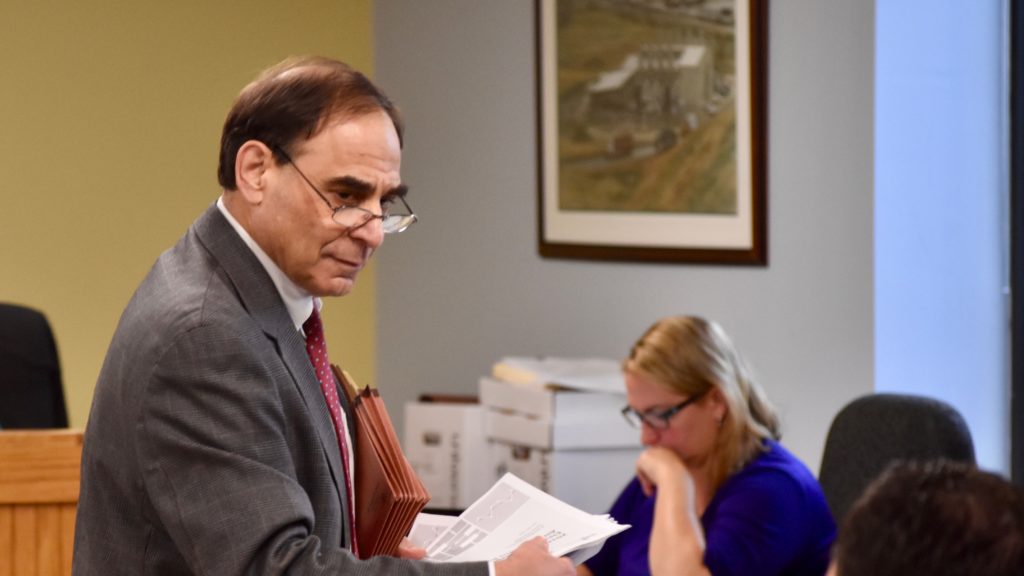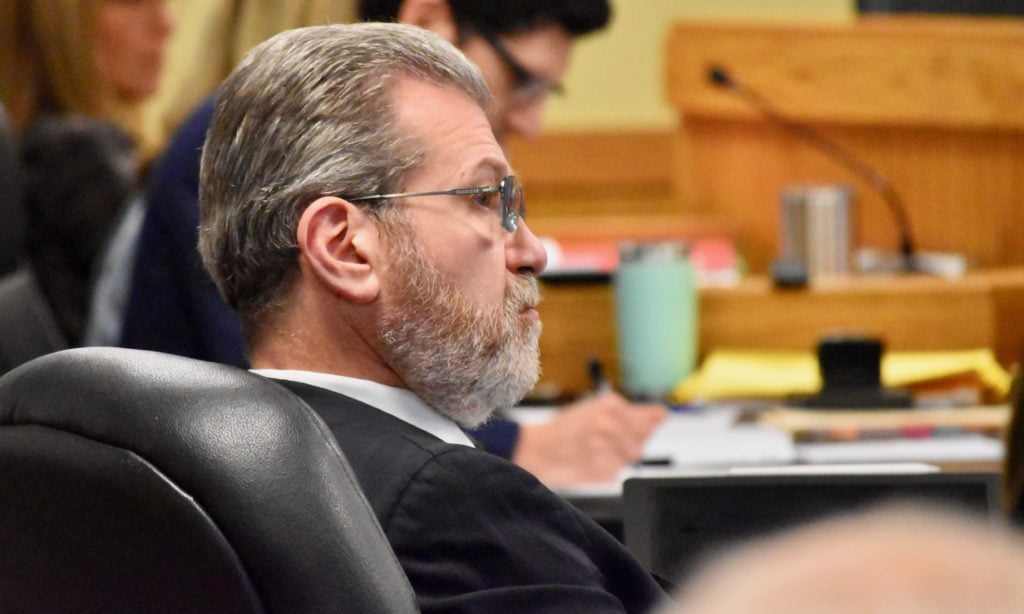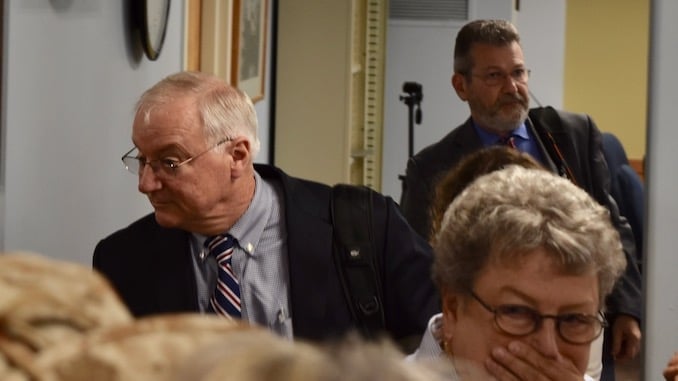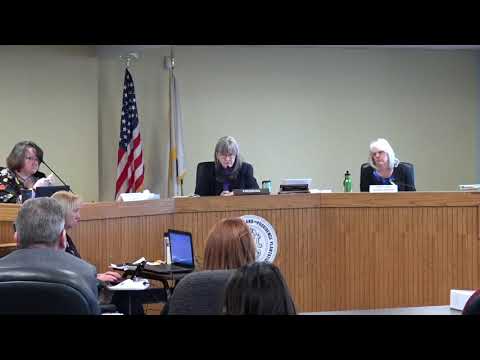Uprise RI issues APRA request to EFSB for previously confidential Invenergy hearing testimony
If, as CLF maintains, Invenergy lied on the FCTS forms that they submitted to ISO New England, then communities and municipalities dealing with proposed Invenergy projects across the United States and around the world will want to have such information. Today UpriseRI issued an Access to Public Records Act (APRA) request to the Energy Facilities Siting Board (EFSB) for three
August 29, 2019, 4:40 pm
By Steve Ahlquist
If, as CLF maintains, Invenergy lied on the FCTS forms that they submitted to ISO New England, then communities and municipalities dealing with proposed Invenergy projects across the United States and around the world will want to have such information.
Today UpriseRI issued an Access to Public Records Act (APRA) request to the Energy Facilities Siting Board (EFSB) for three documents from the recently concluded hearings on the Invenergy project aimed at Burrillville:
- An unreacted copy of Conservation Law Foundation (CLF)’s May 17, 2019 filing entitled “Post-Hearing Memorandum of Conservation Law Foundation”;
- An unredacted copy of the transcript of witness Ryan Hardy‘s cross-examination on January 16, 2019; and
- An unredacted copy of the transcript of witness John Niland‘s testimony of March 28, 2019.
Here’s the background:
On March 28, during the EFSB’s hearings on Invenergy’s failed plan to build a $1B fracked gas and diesel oil burning power plant amidst the irreplaceable forests of northwest Rhode Island, there was an interesting back and forth between Conservation Law Foundation (CLF) Senior Attorney Jerry Elmer and Invenergy Attorney Michael Blazer about supposedly confidential, corporate information and the public’s right to know.

It took place during the cross-examination of John Niland, Invenergy’s Director of Development by Attorney Elmer, who had exhausted his questions on what could be asked during an open hearing, and was about to move into territory covered by a non-disclosure agreement (NDA) signed by all the lawyers and expert witnesses in the room.
The documents at the center of the NDA were the Forward Capacity Tracking System (FCTS) forms, documents Invenergy claims are confidential, because they contain proprietary information on the company’s Capacity Supply Obligations (CSOs). (CSOs are contractual obligations by a power company to provide a certain amount of energy for a certain price at a future time.)
Here’s the thing though: At the time of the hearing, and even more so now, Invenergy had lost or sold off all their CSOs and in fact had been banned from entering into auctions for future CSOs.
The question of confidentiality, therefore, was and is moot: There are no CSOs to protect.
The back and forth between Attorneys Elmer and Blazer was very interesting and revealing.
“CLF is asking that the Board rule that they may be public for the following reasons,” said Elmer. “The information on the forms is generally of two different types. One type is already public in this case and elsewhere such as the size of the proposed plant and what permit applications were applied for. Second, there’s information about attainment of critical path milestones which was properly confidential commercial, proprietary information pertaining to Invenergy’s CSO that Invenergy didn’t want its competitors to have access to, but that’s no longer applicable… there’s no more CSO. There’s no longer any competitors for that CSO. So the information itself is not sensitive today as it was at the time that it was made confidential. There certainly is a keen public interest in the information, and CLF believes that the public interest in the information outweighs Invenergy’s attenuated interest in confidentiality because the private business information is not of benefit to competitors anymore.”

Blazer was having none of that.
“This Board ruled without any objection that this material is confidential and subject to the NDA,” said Blazer. “Second, whether or not it relates to a past CSO has nothing do with the fact that the material contained that we provided is confidential business information that relates to how we develop a bid, our internal financial processes, which, obviously, will also be confidential when we proceed forward to bid into future CSOs. It is clearly confidential information about how we do what we do and how our competitors do what they do.
“It’s always been confidential information,” continued Blazer. “There’s never been an objection about it. There is no exception to confidential information for what Mr Elmer claims to be the public’s right to know. Confidential information is confidential information and it supersedes the public’s right to know, if there is any such right.”
Elmer suggested that if Blazer was right, and the EFSB believed that the information was still of a confidential nature, CLF would have no objection to keeping the FCTS forms confidential. However, said Elmer, at the end of his discussion of the FCTS forms, he would ask the board “to decide that there is nothing that is properly confidential” in the FCTS forms.
As far as I know, Elmer never received a public reply to his request for a decision on the FCTS forms, and so Uprise RI has made an APRA request to make them all public, as well as the testimony of Invenergy’s John Niland and Ryan Hardy, which was held out of public view and discussed the FCTS forms.
Why is this important?
During Attorney Elmer’s opening statement, made way back in April 2018, he said that there were three main areas of inquiry that got to the heart of the question of Invenergy’s honesty. I outlined then, after reading the opening statement, three places that CLF maintained that Invenergy was being less than honest:
- John Niland presenting information to the EFSB on March 31, 2016 at Burrillville High School, in front of 700 people, which information Niland knew to be false at the time he presented it;
- Invenergy’s clandestine lawsuit at Federal Energy Regulatory Agency (FERC) seeking to have $168 million in interconnection costs transferred to ratepayers – which lawsuit Invenergy failed to disclose to the EFSB, but which was revealed to the EFSB by CLF;
- Lies on monthly Forward Capacity Tracking System (FCTS) forms filed by Invenergy with ISO-New England, the operator of the New England electricity grid.
If, as CLF maintains, Invenergy lied on the FCTS forms that they submitted to ISO New England, then communities and municipalities dealing with proposed Invenergy projects across the United States and around the world will want to have such information.
Under state law, the EFSB has ten business days to respond to the APRA request. The EFSB can ask for a twenty day extension. If the request is denied, then the APRA will be appealed to the Rhode Island Attorney General‘s office.
Stay tuned.
UpriseRI is entirely supported by donations and advertising. Every little bit helps:
Become a Patron!







